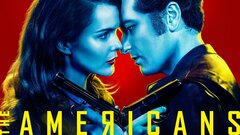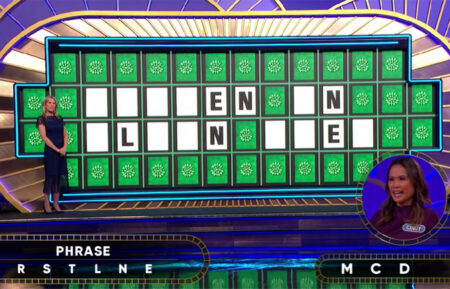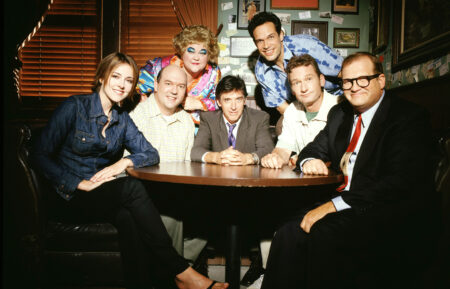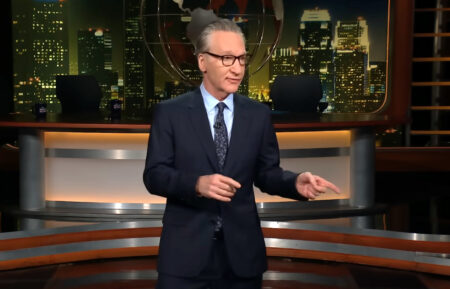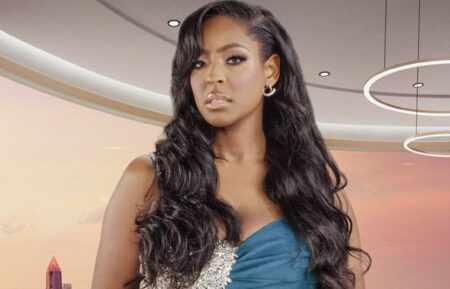Why The Americans is the Best Period Piece on TV
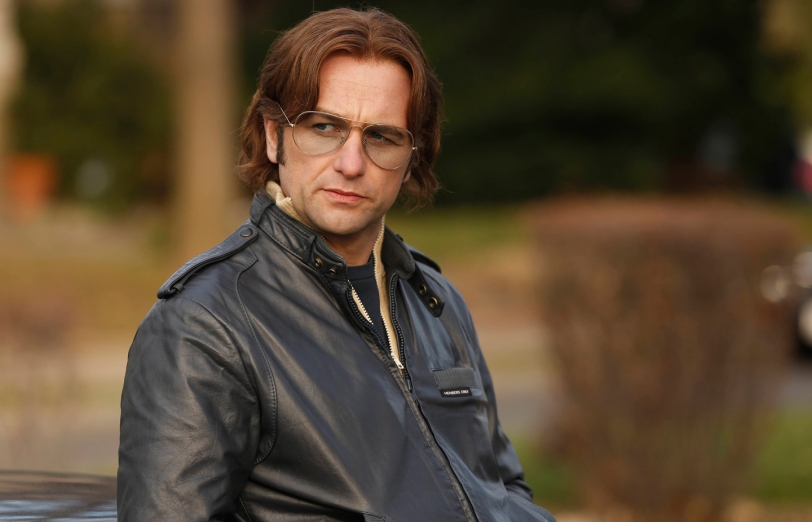
Warning: season finale spoilers ahead.
In a key scene from The Americans‘ Season 3 finale, Philip Jennings visits the apartment of an FBI employee who may know too much about the bugged pen planted in bureau headquarters. Naturally, Philip—the undercover Russian spy responsible for orchestrating Operation Wiretapped Writing Implement—kills the guy. And, naturally, in grand The Americans tradition, he does so while wearing a period-appropriate (if comical) wig.
Afterward, Philip expresses a deeper-than-usual sense of post-mortem guilt, in part because the pop culture ephemera around the room—the Atari console, the Commodore 64, the tiny robot toys that would look right at home on the bedroom shelf of an ’80s child like Philip’s own son, Henry—humanized his victim.
“His apartment had all this kid stuff,” Philip tells his wife and fellow comrade, Elizabeth, after the deed is done. “Games. You know: stuff Henry plays with.”
That moment says a lot about how sympathetic Philip has become to American ways. But it also says a great deal about how subtly and meaningfully The Americans mines the political and cultural details of the early 1980s in order to amplify its narrative themes. While several current series transport us to not-so-distant pasts—Downton Abbey, the also ’80s-set Halt and Catch Fire and The Goldbergs, the oh-so-’90s Fresh Off the Boat and Hindsight—The Americans excels at it in a way matched only by the nostalgically potent Mad Men. With Matthew Weiner’s series just a few episodes from its end, the FX drama will soon inherit the title of most effective and compelling period piece on television.
When any TV series harks back to days of yore, it’s taking a risk. Not only will members of the creative team have to deal with the usual pressure to tell compelling stories week after week, they’ll also need to make sure that everything in the background—costumes, production design, musical choices—captures the time accurately and in a way that feels tonally rich. Play the period too loudly, and it can be a distraction. Reference a trend or social movement in a way that doesn’t sync up to actual history and the writers’ authority is automatically diminished.
 These issues can be easier to navigate in comedy, where a looser attitude toward precision is (slightly) more forgivable. That ’70s Show, which wore its era with all the subtlety of Leif Garrett dressed in a polyester leisure suit while playing Pong, coasted on broad strokes for eight whole seasons. These days, Fresh Off the Boat and, especially, The Goldbergs and VH-1’s Hindsight, telegraph their time periods in ways that are sometimes too obvious (see: the recent Ferris Bueller episode of The Goldbergs) but can also define their charm. Really, would Hindsight be nearly as much fizzy fun without all the baby doll dresses and Alanis Morissette references? Probably not, because the glee of going back to mid-’90s is as much the appeal as Becca’s personal journey.
These issues can be easier to navigate in comedy, where a looser attitude toward precision is (slightly) more forgivable. That ’70s Show, which wore its era with all the subtlety of Leif Garrett dressed in a polyester leisure suit while playing Pong, coasted on broad strokes for eight whole seasons. These days, Fresh Off the Boat and, especially, The Goldbergs and VH-1’s Hindsight, telegraph their time periods in ways that are sometimes too obvious (see: the recent Ferris Bueller episode of The Goldbergs) but can also define their charm. Really, would Hindsight be nearly as much fizzy fun without all the baby doll dresses and Alanis Morissette references? Probably not, because the glee of going back to mid-’90s is as much the appeal as Becca’s personal journey.
Of course, the same could be said of shows like The Americans and Mad Men. Just as Don Draper’s story is intertwined with the tumultuous 1960s, the saga of spies Elizabeth and Peter Jennings is braided into the Reagan-era Cold War. But in drama, it’s important to tease out those connections in whispers rather than shouts. As a show that’s all about clandestine operations, almost everything in The Americans is handled in hushed tones.
The major events and cultural phenomena referenced on the show this season alone included the death of Leonid Brezhnev, the movie Tron, Frusen Glädjé ice cream, and the Yaz album Upstairs at Eric’s (just one of the many masterful uses of ’80s music so far.) But instead of serving merely as giddy #TBT wink-winks, every reference serves a purpose. Stan Beeman takes alleged Soviet defector/actual spy Zinaida to see Tootsie, a movie that was not only hugely popular in late 1982 and 1983 but also serves as sly commentary on Zinaida, a woman living out her own form of disguise. The Americans doesn’t make a big deal out of the relevance of showing us an in-drag Dustin Hoffman; the choice to reference it is quiet but deliberate.

The Jennings’ son Henry has served as a vessel for ’80s pop culture references throughout this third season. He’s a kid fixated on handheld video games, watching television (including promos for the M*A*S*H finale) and quoting Eddie Murphy’s “Mister Robinson’s Neighborhood” sketches from Saturday Night Live. That he obsesses over these things in the background while Philip and Elizabeth focus their attention on his sister Paige is funny and also nostalgically delicious for former children of the ’80s. But it also speaks to what Henry has become while his parents weren’t looking: a typical American latch-key kid who feels fully nourished by his mother country: the United States. As the finale implies, Henry’s childish “games” are going to become a problem for his dad, and probably his mom, too.
Much is made of the ridiculous disguises donned by Philip and Elizabeth—glasses with lenses as large as windshields, pseudo-Pat Benatar haircuts—that recall various ’80s style disasters. It’s a credit to costume designer Jenny Gering and the actors that these accessories aren’t distracting. Case in point: that aforementioned scene in which Philip, played by Matthew Rhys, wrestles with his guilt while sitting in the dead FBI staffer’s apartment. Rhys’ wig makes him look like a middle-aged Ricky Schroeder in a very special episode of Silver Spoons. But all you see and feel when you watch him is the deep, deep sadness in his eyes.
Philip’s internal America-vs-Russia conflict is exemplified further in the finale’s gangbuster last sequence, when he and Elizabeth turn their focus to the TV as President Reagan makes his famous “Evil Empire” speech. The address was delivered to the National Association of Evangelicals, context that’s incredibly relevant considering their Christian daughter Paige is on the phone in the next room confessing to Pastor Tim that her parents are Russians.
It’s a detail the writers of The Americans don’t announce, or even acknowledge. But like so much of the spot-on period detail in this show, it’s right there, powerfully hidden in plain sight—just like those Russian spies across the street who seem like such a nice couple.
From TV Guide Magazine
What to Expect From 'The Hunting Party's Love Triangle and Mystery
Manifest alum Melissa Roxburgh and the showrunner of NBC’s Hunting Party tease TV Guide Magazine about what’s ahead for the “government conspiracy that just keeps unfolding” — plus, the series’ “good” love triangle. Read the story now on TV Insider.


